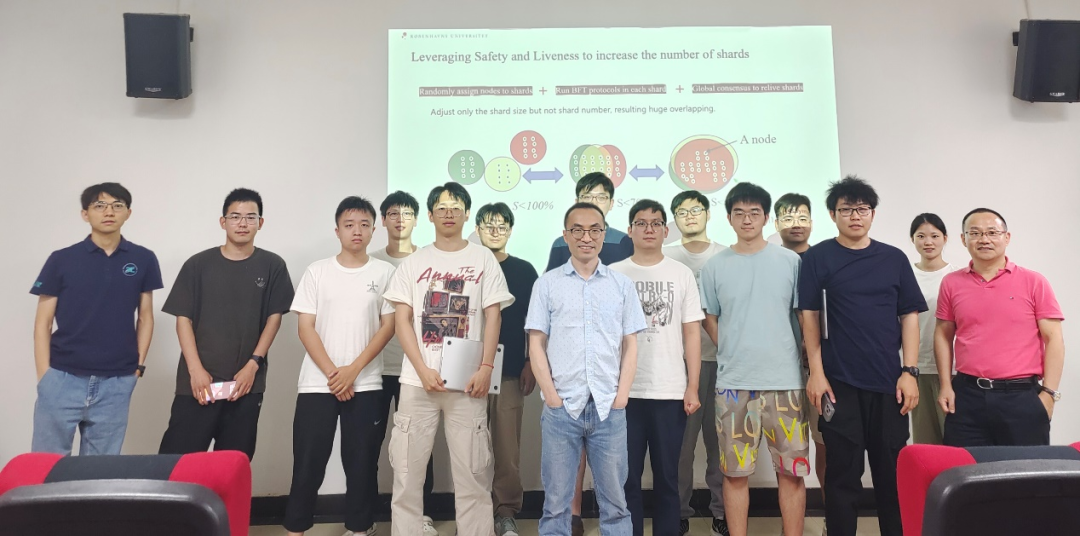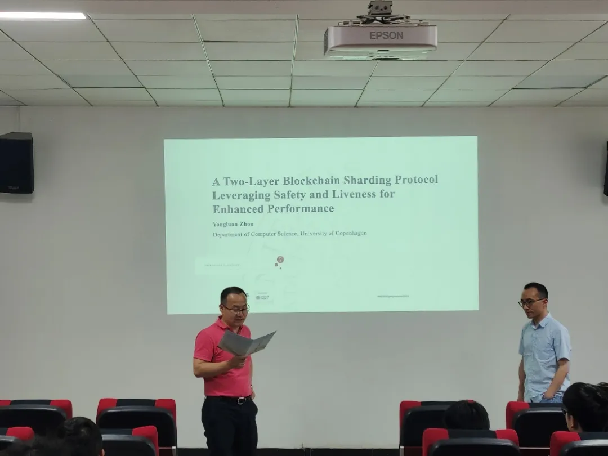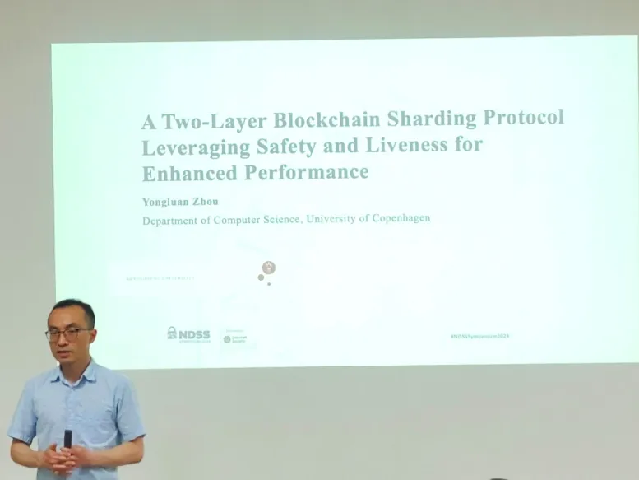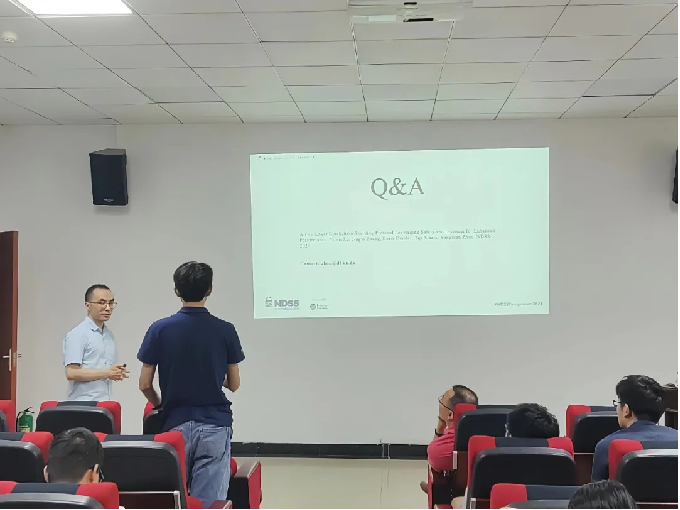On the afternoon of July 9, 2024, a seminar on blockchain sharding protocols was successfully held in Room 210 of the East 5 Building. Professor Zhou Yongluan, from the Department of Computer Science (DIKU) at the University of Copenhagen, who also leads the Data Management Systems Laboratory (DMS Lab) and serves as the Master's Program Director in Computer Science, delivered a fascinating presentation titled "A Two-Layer Blockchain Sharding Protocol Leveraging Safety and Liveness for Enhanced Performance."

At the start of the lecture, Professor Shi Xuanhua, Vice Dean of the School of Computer Science and Technology, warmly welcomed Professor Zhou on behalf of the School. He highlighted Professor Zhou's research areas and achievements, expressing hope that the lecture would promote academic exchange between the computer science departments of both universities, foster better academic communication, and jointly promote the research of the relevant fields, so that more people can benefit from it.

During the lecture, Professor Zhou provided a detailed explanation of blockchain sharding technology. He pointed out that existing protocols often assume adversarial nodes pose generic threats, ignoring the variations in attack types, which limits transaction throughput. Furthermore, past efforts to enhance throughput by addressing attacks separately have introduced security vulnerabilities. To address this, he proposed a new sharding protocol, Reticulum. Reticulum's design is based on two layers: control shards and processing shards, representing two distinct phases. Each processing shard contains at least one highly trusted and honest node, while control shards are expected to have a majority of highly trusted nodes. Reticulum optimizes the participation of nodes in block acceptance or rejection through consensus voting in the first phase, allowing for more parallel processing of shards. Control shards finalize decisions from the first phase and resolve conflicts when they arise.

Experiments have shown that Reticulum's unique design achieves high transaction throughput and robustness in the face of different attack types, making it a superior choice compared to existing blockchain sharding protocols. The lecture provided an in-depth explanation of how Reticulum operates and discussed the experimental results, offering a new solution for blockchain scalability.

Following the presentation, Professor Zhou engaged in lively discussions with the students and faculty in attendance, further deepening their understanding of the lecture’s content.
This lecture facilitated academic exchange between renowned experts, young scholars, and students, broadening the academic horizons of the university's faculty and students. It also helped lay a solid foundation for future in-depth collaborations between institutions.
